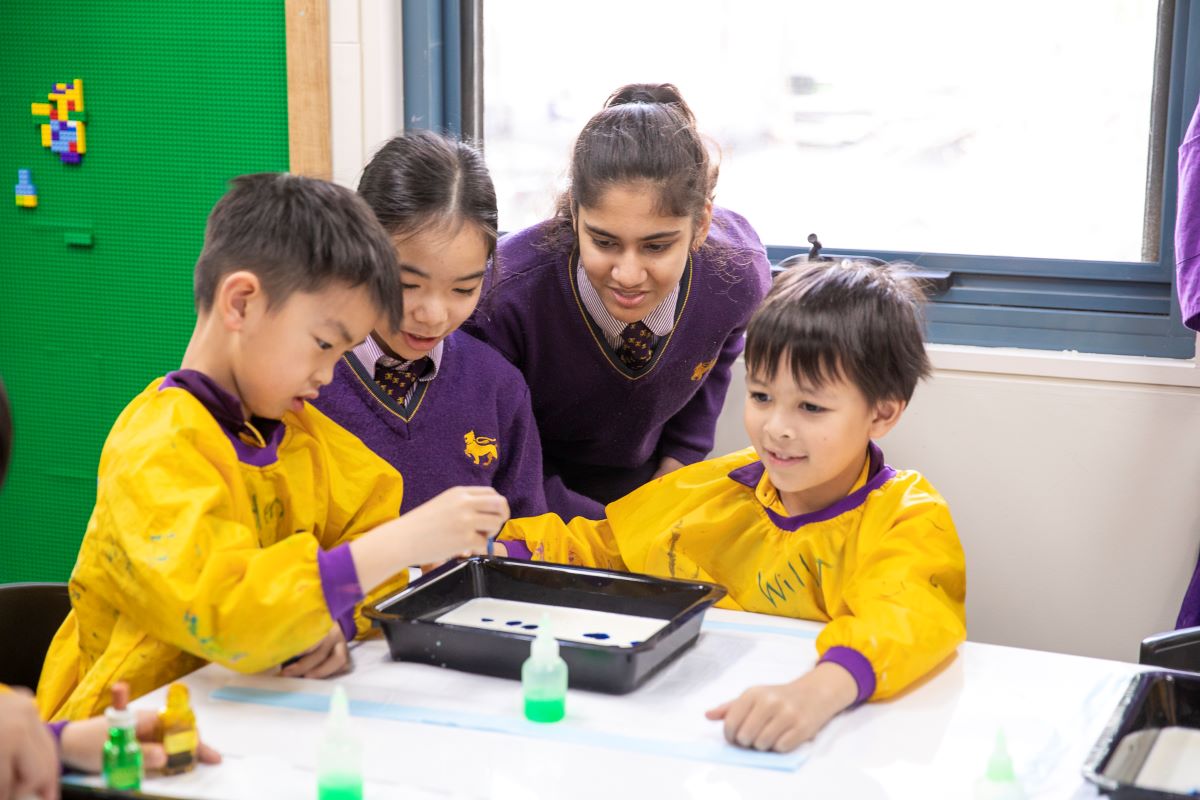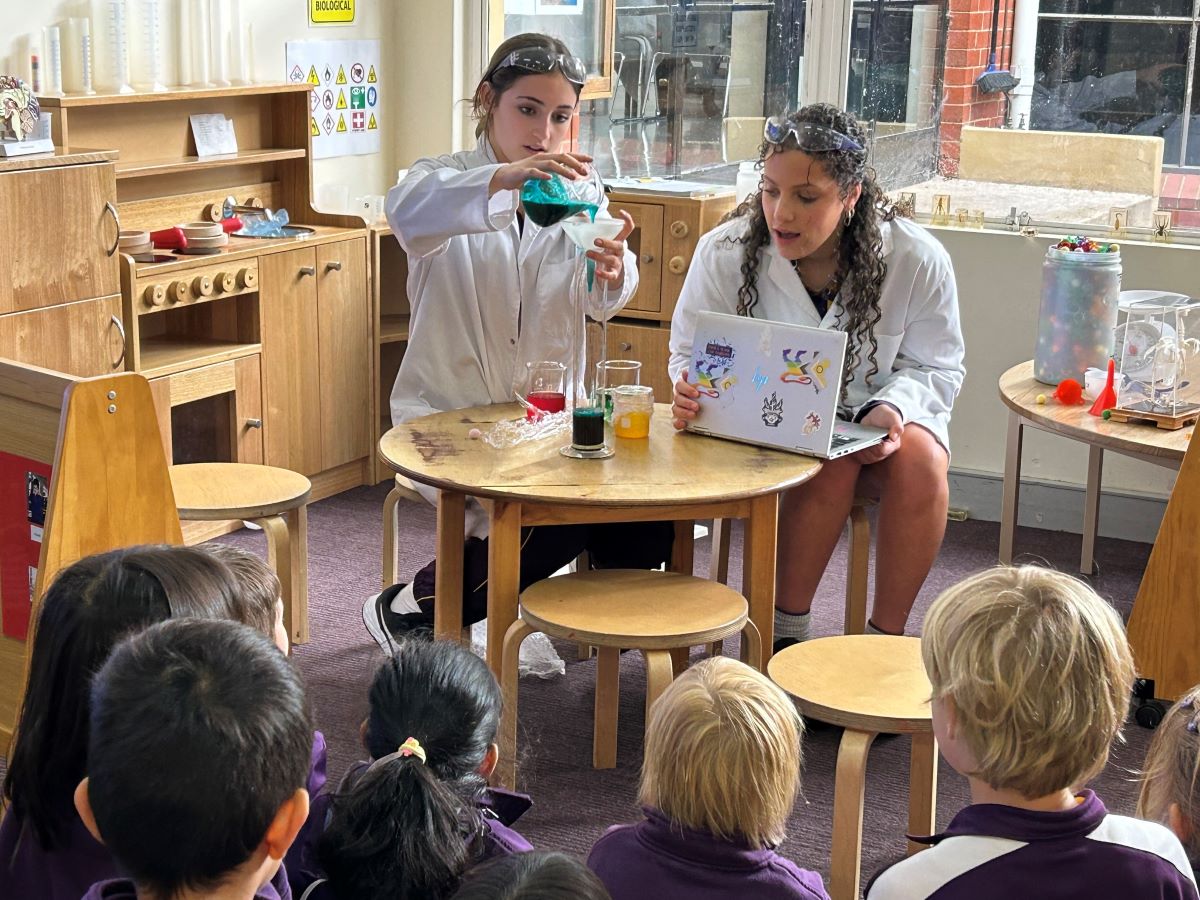Wander past the science lab at the St Kilda Road Campus during lunchtime and you may just hear an explosion (or two!) ring out. It’s nothing to be alarmed about, just the students in Science Club having a bit of fun and learning along the way.

Science Club was started five years ago by science teacher, Dr Helen Faulkner, to encourage Years 7, 8 and 9 students to persist with science into their senior years of schooling, particularly girls.
‘We need to encourage more young people to maintain their early passion and curiosity about science and to pursue STEM careers in the future,’ said Dr Faulkner, who hopes more of her students will decide to pursue challenging science subjects in senior school.
‘The world needs more, and more varied scientists,’ said Dr Faulkner. ‘The COVID pandemic and climate change are two examples of how much we need our most capable people leading the research, and to back that up with high levels of scientific literacy in the general community.’
‘I was new to the school this year, so it was great when a friend invited me along to see what Science Club was all about. Now I’m a regular!’ said Violet, Year 7. ‘It doesn’t matter how much you know, everyone is welcome and the older students are happy to share their knowledge.’
‘I’ve always enjoyed science because it gives the mysteries of the world an explanation…like a long-awaited answer to a question,’ said Karina, Year 7.

Year 9 students at the Elsternwick Campus have also been sharing their love of science with a curious group of Junior School students. During Science Week, they took the opportunity to visit classes to demonstrate practical scientific tasks, explaining the science behind each of their experiments.
The visit complemented some of the work our Junior School students have been undertaking in their Science classes in the Primary Years Program. Recently Year 1 and 2 visited Scienceworks to understand more about 'How the world works', one of their PYP units of inquiry this term, and that the 'Earth's cycles affect our daily lives.'
The 'Sports Works' section was 'really fun'. Emily, Year 2, enjoyed racing against Cathy Freeman. 'She is so fast and off the screen in seconds! She was too quick to beat.'
Marcus, Year 1, said, 'We learnt about the solar system in the planetarium. I saw the Milky Way and lots of stars, which are actually named after the people that found them and other amazing scientists. Stars are actually full of gases and our sun is a big star too!'
At the Glen Waverley Campus, another successful exhibition from the 'Wonderous World' project was presented in Term 3. The pop up exhibition included posters made by the students about topics including the different planets, precious stones such as diamond, the life cycle of plants and flowers, and more.
The 'Wonderous World' project is a unique mentoring program for Junior School girls who are interested in researching and discovering more about a topic of their choice, through the lens of science. Guided by a Senior School mentor, students spend several weeks researching and then creating a display with their findings.
This annual project led by Blair Odom, Head of Science and Technology in the IB Primary Years Program, has helped to encourage and engage a growing number of budding female Junior School scientists.
